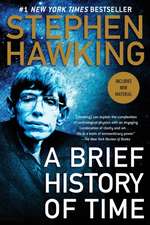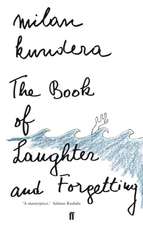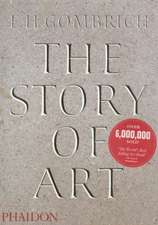On the Origin of Species: By Means of Natural Selection or the Preservation of Favored Races in the Struggle for Life
Autor Charles Darwinen Limba Engleză Paperback – 28 feb 2007
| Toate formatele și edițiile | Preț | Express |
|---|---|---|
| Paperback (29) | 50.05 lei 10-16 zile | +20.86 lei 6-10 zile |
| OUP OXFORD – 13 noi 2008 | 50.05 lei 10-16 zile | +20.86 lei 6-10 zile |
| Alma Books COMMIS – 23 ian 2019 | 52.54 lei 3-5 săpt. | +13.63 lei 6-10 zile |
| Penguin Books – 2 sep 2009 | 56.96 lei 23-34 zile | +25.48 lei 6-10 zile |
| CREATESPACE – | 63.82 lei 3-5 săpt. | |
| CANTERBURY CLASSICS – 16 feb 2023 | 65.56 lei 23-35 zile | |
| Dover Publications – 31 mai 2006 | 66.10 lei 3-4 săpt. | +23.23 lei 6-10 zile |
| – | 74.22 lei 3-5 săpt. | |
| CREATESPACE – | 87.26 lei 3-5 săpt. | |
| CreateSpace Independent Publishing Platform – | 90.23 lei 3-5 săpt. | |
| CREATESPACE – | 97.02 lei 3-5 săpt. | |
| – | 99.05 lei 3-5 săpt. | |
| CREATESPACE – | 101.68 lei 3-5 săpt. | |
| – | 111.58 lei 3-5 săpt. | |
| – | 119.51 lei 3-5 săpt. | |
| CREATESPACE – | 120.59 lei 3-5 săpt. | |
| CREATESPACE – | 125.16 lei 3-5 săpt. | |
| CREATESPACE – | 128.87 lei 3-5 săpt. | |
| CREATESPACE – | 129.30 lei 3-5 săpt. | |
| – | 132.22 lei 3-5 săpt. | |
| CREATESPACE – | 143.10 lei 3-5 săpt. | |
| CreateSpace Independent Publishing Platform – | 149.50 lei 3-5 săpt. | |
| – | 171.24 lei 3-5 săpt. | |
| CREATESPACE – | 189.63 lei 3-5 săpt. | |
| Outlook Verlag – 24 sep 2019 | 322.78 lei 3-5 săpt. | |
| CreateSpace Independent Publishing Platform – | 95.66 lei 6-8 săpt. | |
| COSIMO CLASSICS – 28 feb 2007 | 147.50 lei 6-8 săpt. | |
| – | 172.03 lei 6-8 săpt. | |
| – | 172.08 lei 6-8 săpt. | |
| Cambridge University Press – 9 dec 2015 | 398.94 lei 6-8 săpt. | |
| Hardback (6) | 48.92 lei 3-5 săpt. | +33.79 lei 6-10 zile |
| Pan Macmillan – 6 feb 2017 | 48.92 lei 3-5 săpt. | +33.79 lei 6-10 zile |
| Natural History Museum – noi 2019 | 73.10 lei 3-5 săpt. | +31.48 lei 6-10 zile |
| Outlook Verlag – 24 sep 2019 | 460.04 lei 3-5 săpt. | |
| INDY PUB – sep 2002 | 182.58 lei 6-8 săpt. | |
| COSIMO CLASSICS – 28 feb 2007 | 223.94 lei 6-8 săpt. | |
| Cambridge University Press – 13 mai 2009 | 1039.14 lei 6-8 săpt. |
Preț: 147.50 lei
Nou
Puncte Express: 221
Preț estimativ în valută:
28.23€ • 29.12$ • 23.89£
28.23€ • 29.12$ • 23.89£
Carte tipărită la comandă
Livrare economică 05-19 martie
Preluare comenzi: 021 569.72.76
Specificații
ISBN-13: 9781602061446
ISBN-10: 1602061440
Pagini: 328
Dimensiuni: 140 x 216 x 19 mm
Greutate: 0.42 kg
Ediția:1
Editura: COSIMO CLASSICS
Locul publicării:United States
ISBN-10: 1602061440
Pagini: 328
Dimensiuni: 140 x 216 x 19 mm
Greutate: 0.42 kg
Ediția:1
Editura: COSIMO CLASSICS
Locul publicării:United States
Descriere
Descriere de la o altă ediție sau format:
'can we doubt ... that individuals having any advantage, however slight, over others, would have the best chance of surviving and of procreating their kind?'In the Origin of Species (1859) Darwin challenged many of the most deeply held beliefs of the Western world. His insistence on the immense length of the past and on the abundance of life-forms, present and extinct, dislodged man from his central position in creation and called into question the role of the Creator. He showed that new species are achieved by natural selection, and that absence of plan is an inherent part of the evolutionary process.Darwin's prodigious reading, experimentation, and observations on his travels fed into his great work, which draws on material from the Galapagos Islands to rural Staffordshire, from English back gardens to colonial encounters. The present edition provides a detailed and accessible discussion of his theories and adds an account of the immediate responses to the book on publication. The resistances as well as the enthusiasms of the first readers cast light on recent controversies, particularly concerning questions of design and descent. ABOUT THE SERIES: For over 100 years Oxford World's Classics has made available the widest range of literature from around the globe. Each affordable volume reflects Oxford's commitment to scholarship, providing the most accurate text plus a wealth of other valuable features, including expert introductions by leading authorities, helpful notes to clarify the text, up-to-date bibliographies for further study, and much more.
'can we doubt ... that individuals having any advantage, however slight, over others, would have the best chance of surviving and of procreating their kind?'In the Origin of Species (1859) Darwin challenged many of the most deeply held beliefs of the Western world. His insistence on the immense length of the past and on the abundance of life-forms, present and extinct, dislodged man from his central position in creation and called into question the role of the Creator. He showed that new species are achieved by natural selection, and that absence of plan is an inherent part of the evolutionary process.Darwin's prodigious reading, experimentation, and observations on his travels fed into his great work, which draws on material from the Galapagos Islands to rural Staffordshire, from English back gardens to colonial encounters. The present edition provides a detailed and accessible discussion of his theories and adds an account of the immediate responses to the book on publication. The resistances as well as the enthusiasms of the first readers cast light on recent controversies, particularly concerning questions of design and descent. ABOUT THE SERIES: For over 100 years Oxford World's Classics has made available the widest range of literature from around the globe. Each affordable volume reflects Oxford's commitment to scholarship, providing the most accurate text plus a wealth of other valuable features, including expert introductions by leading authorities, helpful notes to clarify the text, up-to-date bibliographies for further study, and much more.
Notă biografică
Charles
Darwin
(Author)
Charles Darwin, a Victorian scientist and naturalist, has become one of the most famous figures of science to date. Born in 1809 to an upper-middle-class medical family, he was destined for a career in either medicine or the Anglican Church. However, he never completed his medical education and his future changed entirely in 1831 when he joined HMSBeagleas a self-financing, independent naturalist. On returning to England in 1836 he began to write up his theories and observations which culminated in a series of books, most famouslyOn the Origin of Species by Means of Natural Selectionin 1859, where he challenged and contradicted contemporary biological and religious beliefs with two decades worth of scientific investigation and theory. Darwin's theory of natural selection is now the most widely accepted scientific model of how species evolve. He died in 1882 and was buried in Westminster Abbey.
William Bynum (External Editor, Introducer)
William Bynum is Professor Emeritus of the History of Medicine at University College, London, and was for many years Head of the Academic Unit of the Wellcome Institute for the History of Medicine. He edited the scholarly journalMedical Historyfrom 1980 to 2001, and his previous publications includeScience and the Practice of Medicine in the Nineteenth Century;The Companion Encyclopedia of the History of Medicine(co-edited with Roy Porter);The Oxford Dictionary of Scientific Quotations(with Roy Porter),The Dictionary of Medical Biography(with Helen Bynum), andHistory of Medicine: A Very Short Introduction. He lives in Suffolk.
Charles Darwin, a Victorian scientist and naturalist, has become one of the most famous figures of science to date. Born in 1809 to an upper-middle-class medical family, he was destined for a career in either medicine or the Anglican Church. However, he never completed his medical education and his future changed entirely in 1831 when he joined HMSBeagleas a self-financing, independent naturalist. On returning to England in 1836 he began to write up his theories and observations which culminated in a series of books, most famouslyOn the Origin of Species by Means of Natural Selectionin 1859, where he challenged and contradicted contemporary biological and religious beliefs with two decades worth of scientific investigation and theory. Darwin's theory of natural selection is now the most widely accepted scientific model of how species evolve. He died in 1882 and was buried in Westminster Abbey.
William Bynum (External Editor, Introducer)
William Bynum is Professor Emeritus of the History of Medicine at University College, London, and was for many years Head of the Academic Unit of the Wellcome Institute for the History of Medicine. He edited the scholarly journalMedical Historyfrom 1980 to 2001, and his previous publications includeScience and the Practice of Medicine in the Nineteenth Century;The Companion Encyclopedia of the History of Medicine(co-edited with Roy Porter);The Oxford Dictionary of Scientific Quotations(with Roy Porter),The Dictionary of Medical Biography(with Helen Bynum), andHistory of Medicine: A Very Short Introduction. He lives in Suffolk.
Caracteristici
New edition of a timeless classic, now part of Alma's successful Evergreen series
Cuprins
Introduction; On the Origin of Species; Appendix 1. An evolving origin; Appendix 2. Biographical register; Explanatory notes; Bibliography.
Recenzii
'[This] anniversary edition of the Origin of Species is one of the best editions available and a highly recommended book, especially for students and newcomers in Darwin's world.' Newsletter, International History, Philosophy and Science Teaching Group
'There is no way to understand Darwin unless one reads his own writings: the Origin of Species is an excellent starting point to read Darwin and I will argue that this Cambridge anniversary edition is an excellent choice for anyone who wants to read the book, especially if he knows absolutely nothing about it. Science and Education Journal
'There is no way to understand Darwin unless one reads his own writings: the Origin of Species is an excellent starting point to read Darwin and I will argue that this Cambridge anniversary edition is an excellent choice for anyone who wants to read the book, especially if he knows absolutely nothing about it. Science and Education Journal
























